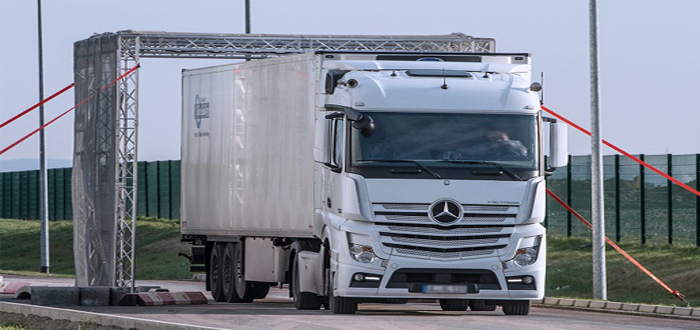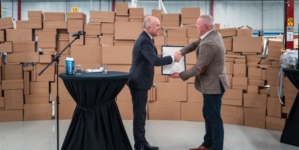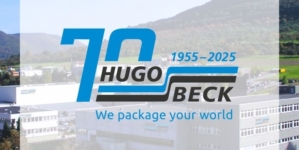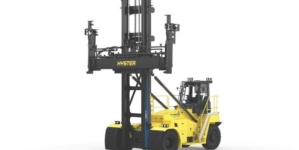-
Nutrivend selects Forterro’s Orderwise to support online expansion and streamline operations - April 11, 2025
-
ARROWXL LAUNCHES AMBITIOUS ZERO WASTE ROADMAP - April 8, 2025
-
THE BCMPA’S NEW CAMPAIGN DRIVES OUTSOURCING SUCCESS IN Q1 - April 7, 2025
-
BLACKOUT TECHNOLOGIES TARGETS TELEMATICS-INTEGRATED MOBILE DEVICE BLOCKING TO COMBAT SMARTPHONE DISTRACTION - April 1, 2025
-
Sparck Technologies awarded Royal designation - March 27, 2025
-
OpenADR Alliance announces first OpenADR 3.0 certified products with EVoke Systems, E.ON Energy and Universal Devices - March 25, 2025
-
Growing fulfilment and contract packer appoints new Managing Director - March 25, 2025
-
When is it time to invest in a WMS? Understanding the key trigger points - March 25, 2025
-
eCapital helps Vantage Recruitment on its journey to financial success - March 24, 2025
-
Hugo Beck Celebrates 70 Years of Packaging Innovation with Open House Events - March 20, 2025
Intelligent Load Carriers.
Clear identification of pallets and their cargo, expedited receipt of goods, and seamless trackability – RFID technology offers many benefits to logistics. Unlike barcodes or labels, the small transponders can store significantly more information and make it available at any time – also in large quantities and in a matter of seconds thanks to bulk reading. This allows operators to control their production and logistics processes much more precisely, thus making them significantly more efficient.
The use of RFID technology (radio frequency identification) in production and logistics is rapidly on the rise. These devices enable companies to turn their products and equipment into intelligent and communicable information carriers. The tiny transponders can be easily integrated into goods or load carriers and are capable of hosting a wide range of data, record it in seconds, and read it out, all without touch. Through the use and evaluation of these data, users are able to optimize individual processes in a targeted manner – and ultimately the entire value-creation chain – making it more economical as a result.
Multi-trip pallets predestined for data analysis
One of the more promising approaches is the use of RFID tags in multi-trip pallets. The robust load carriers are frequently part of the supply chain over many runs and years and can thus offer valuable insights. In addition to that, these pallets usually handle many different storage and transportation tasks, which means they can be utilized in various ways to gain information, such as when receiving or dispatching goods, during picking, or in production. Moreover, these units are generally used in large numbers, i.e., a statistically representative quantity, which makes the collected data even more meaningful.
When equipping these load carriers with RFID technology, usually two tags are adhered inside the hollow chambers of the pallet feet during production. The advantage of doing so is that one of the tags is always in the proximity of a reader, no matter what position the pallet is in. The small transponders can store and transmit data entirely without touch and visual contact, even over a distance of several meters. They are hidden and cannot be lost, are resistant to heat, cold, humidity, and are protected against damage inside the pallet. Which means they can be safely and reliably used for the long term.
Individual data stored in the transponder
The big advantage for companies: RFID tags can hold a vast amount of information about the goods on the pallet, such as item numbers, quantities, weight, or shelf life information. This means the pallet and load can be uniquely identified at all times. The usage possibilities are numerous, depending on the industry: For example, users in the chemical industry can store information about hazardous substances on the pallet, so that it can be warehoused accordingly. Food manufacturers can deliver goods with a shorter shelf life more quickly or locally. Pharmaceutical companies can monitor batch numbers in order to make their sensitive products fully traceable. Retailers are given a complete overview of all movements of goods, enabling them to update their stock automatically. All of these solutions facilitate logistics and can contribute to cost-savings.
In addition, RFID tags also make it possible to prepare shipping documents as soon as a shipment passes a certain control station. Bulk reading makes the process of simultaneously scanning several hundreds of moving transponders possible – saving time and making the job tremendously easier. Cumbersome searches for dispatch numbers or barcodes are no longer required, and visual contact is a thing of the past as well. Besides that, companies can track their flow of goods throughout, which minimizes errors and losses. Locations where an inordinate number of damage incidents occur can be narrowed down. This contributes to optimizing the affected processes accordingly.
RFID also attractive for pooling service providers
Pooling service providers can also benefit from using RFID technology in multi-trip pallets. Because the tags can even contain information about the load carrier itself. Each pallet is given an electronic product code (EPC) immediately after its manufacture, which makes it uniquely identifiable, as well as other data which is coordinated with the customer. This includes the date of manufacture or the material. The status of the pallet can also be noted on the transponder, depending on whether the pallet is currently being manufactured, transported to the manufacturer’s warehouse, transported to the customer, handed over to the customer, reported as damaged, or recycled and deleted. In all of these cases the pallets pass through an RFID gate or through a corresponding device in order to read the transponder and store the new status. This gives pooling service providers much improved transparency over their stock. Each and every pallet can be found within the pooling cycle, and damage and losses can be clearly analyzed.
Innovative plastic pallet with RFID technology
Cabka-IPS is one of the trendsetters for RFID solutions for pallets. In collaboration with the Fraunhofer Institute for Factory Operation and Automation IFF, the company has developed a system for implementing RFID tags in plastic pallets. This technology is used with the Heilbronner half-pallet (HHP), among others, which Cabka-IPS brought to market together with the pooling company GreenCycle, which is part of the Schwarz Group. This is a cost-efficient and environmentally friendly alternative to the wooden Düsseldorf pallet, and was developed to be the future standard bearer for production facilities with a high degree of automation. The transponders incorporated in the pallet foot make the load carriers uniquely identifiable and facilitate precise recording of all goods movements as well reliably determining their current location.
Currently, GreenCycle has more than 1.5 million pallets with RFID technology in circulation. Among other benefits, the tags allow pooling service providers to process their trucks faster, get an automatic overview of the load carrier stock, and track all movements of the goods. The RFID solution from Cabka-IPS makes the transport and logistics processes faster, more efficient, and more cost-effective.
Making the invisible visible
Cabka-IPS, the Fraunhofer Institute IFF, and other development partners are already working on the further development of the multi-trip pallet transponders, which can bring along many decisive advantages: As part of the ongoing digitalization and networking of production and logistics, load carriers are increasingly connected to the Internet of Things. When using sensors, pallets can also record environmental data such as the temperature and humidity, for example, and transmit this information in real-time. Users can access all relevant data also on mobile devices such as smartphones, smartwatches, or tablets. This means that users are warned in good time when malfunctions occur or critical values are reached, allowing them to act swiftly. Precise and ongoing web-based analyses of ever more available information also facilitate operating long and complex value chains more efficiently and transparently than ever before. RFID technology is already providing the groundwork for this – now, it is simply a matter of giving shape to his opportunity. The successes that have been achieved to data indicate that many users and pooling service providers intend to integrate and take advantage of this new opportunity in the future.
































